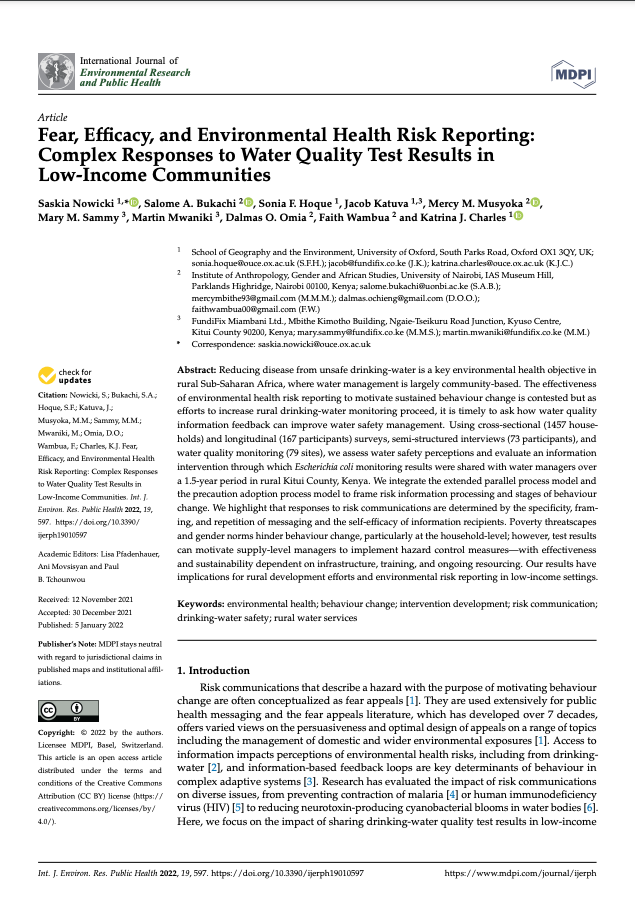Authors: Saskia Nowicki, Salome A. Bukachi, Sonia F. Hoque, Jacob Katuva, Mercy M. Musyoka, Mary M. Sammy, Martin Mwaniki, Dalmas O. Omia, Faith Wambua, and Katrina J. Charles.
Reducing disease from unsafe drinking-water is a key environmental health objective in rural Sub-Saharan Africa, where water management is largely community-based. The effectiveness of environmental health risk reporting to motivate sustained behaviour change is contested but as efforts to increase rural drinking-water monitoring proceed, it is timely to ask how water quality information feedback can improve water safety management. Using cross-sectional (1457 house- holds) and longitudinal (167 participants) surveys, semi-structured interviews (73 participants), and water quality monitoring (79 sites), we assess water safety perceptions and evaluate an information intervention through which Escherichia coli monitoring results were shared with water managers over a 1.5-year period in rural Kitui County, Kenya. We integrate the extended parallel process model and the precaution adoption process model to frame risk information processing and stages of behaviour change. We highlight that responses to risk communications are determined by the specificity, framing, and repetition of messaging and the self-efficacy of information recipients. Poverty threatscapes and gender norms hinder behaviour change, particularly at the household-level; however, test results can motivate supply-level managers to implement hazard control measures—with effectiveness and sustainability dependent on infrastructure, training, and ongoing resourcing. Our results have implications for rural development efforts and environmental risk reporting in low-income settings.

